Iranian Activist Says Regime Intends To Force Him Into Exile

Former political prisoner Hossein Ronaghi says the intelligence ministry has requested the Prosecutor's Office to issue an order to send him into exile.

Former political prisoner Hossein Ronaghi says the intelligence ministry has requested the Prosecutor's Office to issue an order to send him into exile.
He further noted in a tweet that he has found out that based on the order his bank accounts will be blocked and he will be deprived of his citizenship rights.
Ronaghi is an Iranian blogger, human rights activist and political dissident who was arrested on September 24. 2022, along with his lawyers in front of the Evin Prison prosecutor's office and transferred to jail where he was tortured.
In protest, Ronaghi went on a hunger strike after his arrest amid antigovernment protests and refused liquid nourishment and water.
Tehran residents rushed to the hospital in November after his brother wrote in a tweet that security agents had moved Ronaghi from prison to a hospital. He said his brother “got on an ambulance fully awake after talking to his mother,” adding “whatever happens to Hossein is nothing more than a pre-planned scenario because they intend to kill him.”
Ronaghi, 37, a contributor to The Wall Street Journal, has for years been one of the most fearless critics of the Islamic Republic who has stayed in the country.
Iranian authorities on November 26 released Ronaghi on bail.
In previous rounds of torture, the dissident has lost one kidney and his second kidney is functioning at 60 percent, according to human rights sources.
Hossein Ronaghi has been arrested and jailed several times in the past 13 years. He was detained in 2009 for his role in the post-election protests. Ronaghi was arrested again in February 2022 after criticizing a bill that would limit internet access in Iran.
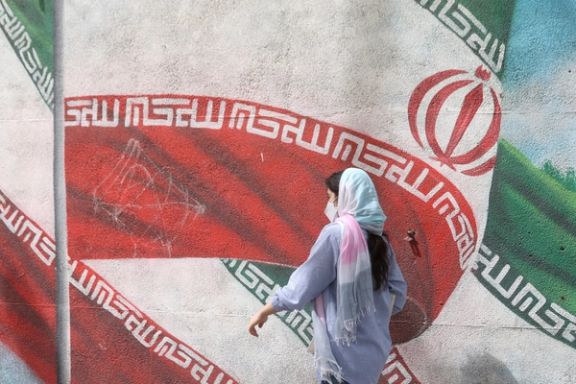
Commentators on both sides of Iran's factional divide continue to criticize the government and offer advice on what is needed to get out of the political impasse.
Referring to Supreme Leader Ali Khamenei's recent speech in which he said, "The enemy has started to prepare its artillery against the upcoming elections in Iran," conservative commentator Mohammad Mohajeri quipped in a column in the reformist Etemad newspaper: "What can the enemy do to harm the elections?" and explained that "downplaying the importance of voter turnout, manipulating the election process, rigging the elections, and helping unqualified people to win the elections are among the things the enemy can do to that end."
The commentator was referring to the interference of the Guardian Council, an undemocratic body inserted into the constitution, that rejected hundreds of candidates in the parliamentary election in 2020, and again rejected qualified contenders in the 2021 presidential vote.
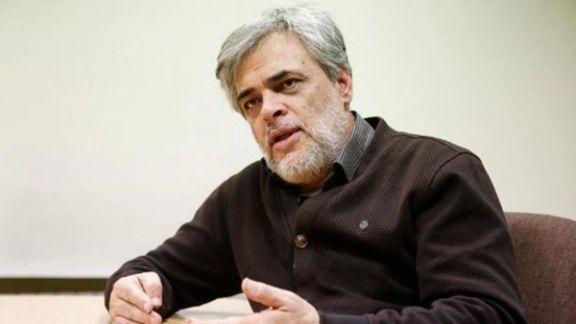
Mohajeri pointed out that the enemy cannot interfere with the process of elections. Those who interfere are Islamic Republic officials. executives, supervisory bodies, and security organizations. The enemies will begin their attacks and propaganda only after state officials and institutions make big mistakes by intervening in the election process with the aim of changing the results, he said.
Mohajeri added: "The Guardian Council is where most of such mistakes are made. It is involved from the beginning to the end of the elections and its behavior has always been controversial. The council vets the candidates and appoints the inspectors and supervisors."
He further pointed out that many of those who have been disqualified by the Guardian Council in previous years are well-known political figures who would have been more useful than the current members of the parliament.

Meanwhile, reformist commentator Abbas Abdi accused current officials of making the government useless by bringing it into constant confrontation with the people and their demands. This approach, he said, “will tire everyone including yourselves and I can see the signs of this fatigue in your behavior.”
"The government's interventionist approach and its insistence on excessive and often unnecessary control and punishment, as well as its confrontational approach and its refusal to hold any dialogue have a destructive impact on many economic, political, social and cultural processes including the country's foreign policy," Abdi said.
"When we follow the news, we see many examples of that confrontational behavior for instance in trying to control prices through issuing orders. Everyone, except the government, knows that this does not work. Not only it does not work, it also leads to corruption. The government uses the same wrong methods to fix interest rates, foreign exchange rates and the price of eggs, utilities, fuel, rent and so on.
The government intervenes in everything, including dress code and childbirth, which are issues that cannot be regulated through confrontation, penalties and imprisonment," Abdi added.
The prominent commentator stressed that such methods can only widen the gap between the people and the government.
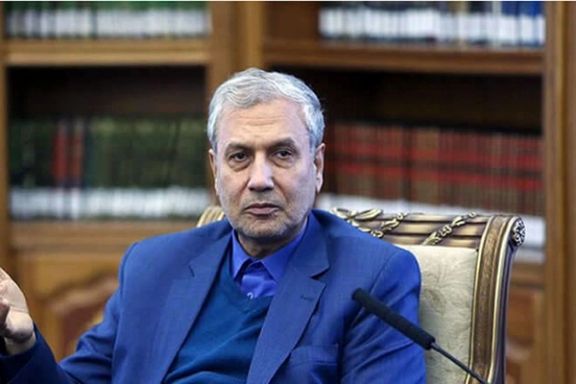
Meanwhile, shedding light on the bigger picture, former government spokesman and moderate politician Ali Rabiei wrote in article in Etemad that "All revolutions in the Middle East have given governments in the region a license to violate citizenship and human rights as well as democratic rules."
He suggested that governments that rule in the name of revolutions need to find a way to reconcile revolutionary values and citizens' rights by giving the people the right to complain to the judiciary system if government officials undermine their essential rights.

The Gavkhuoni wetland in central Iran has totally dried up and just two or three percent of its northern part has water, risking grave consequences to the local ecosystem and country's water supply.
“The release of water in February of last year caused the wetland to become wet by six or seven percent, but because this water flow did not continue and we faced the hot season, it was ineffective,” Hossein Akbari, Deputy of Environmental Protection of Esfahan (Isfahan) Province told Thursday.
Akbari further pointed out that a total of about 15 million cubic meters of water and sewage reached the wetland last year (ending on March 21) which was ineffective for Gavkhouni's regeneration.
A salt marsh with a salinity of 31.5% and an average depth of about one meter, the wetland is home to a variety of migratory birds including flamingos, ducks, geese, gulls, pelicans, and grebes.

Since 1900, nearly 64% of the world's wetlands have disappeared, and 35% have vanished since 1970, according to the Global Wetland Outlook 2021.
Many of Iran's wetlands are already on the verge of extinction. The country is known to have 141 wetlands spread across three million hectares.
As a result of the fast-disappearing wetlands, the country has suffered a growing water crisis, which has fueled anger and discontent. The annual rainfall has plummeted to almost one-third of the global average, with the majority of provinces increasingly arid.

Scientists at some of Britain's top universities helped Iran develop drones and fighter jets in spite of sanctions against the regime.
The revelations were revealed in the UK's Jewish Chronicle newspaper, sparking outrage among lawmakers.
A government spokesperson said Britain would not "accept collaborations which compromise our national security" while David Lammy, the Shadow Foreign Secretary, said the investigation by the JC was "deeply troubling" and called for an urgent investigation into sanctions violations.
Meanwhile, Alicia Kearns MP, chair of the Commons Select Committee on Foreign Affairs said: “This is a horrifying collaboration, one that I fear risks breaching sanctions in place around sensitive and dual-use technologies.”
At least 11 British universities are involved, including Cambridge University and Imperial College London, whose staff are producing at least 16 studies that could be used by Iranian military forces.
In addition to its ban on military and "dual-use" technologies being exported to Iran, the UK has recently imposed new sanctions against Iranians supplying Russia with kamikaze drones that are being used in Ukraine.
According to the Jewish Chronicle, Tehran funded researchers in Britain working on improving drone engines in a project that boosted altitude, speed, and range.
Another British university partnered with Iranian counterparts to test sophisticated new control systems for jet engines, aimed at improving their "maneuverability and response time".
A number of MPs have requested details about how the research, including projects which could boost the technology being sold to Russia in its war in Ukraine, was conducted under the nose of the government's supposedly tough sanctions regime.
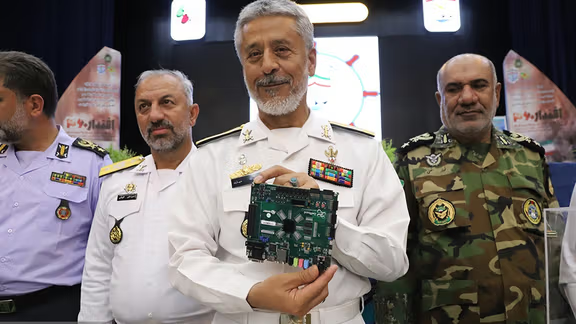
The unveiling of a proclaimed “quantum processor” produced by the Iranian army has drawn controversy and ridicule in Persian social media.
The device was showcased as “the first product of the quantum processing algorithm” on the sidelines of a meeting on "Quantum Processing" at the Navy’s Imam Khomeini Maritime University in Noshahr, in the northern province of Mazandaran last week.
Rear Admiral Habibollah Sayyari, the Coordinating Deputy of the Islamic Republic’s Army and the former Commander of the Navy, officially unveiled the device after he delivered a speech about the country’s advances in modern technologies.
Describing quantum and plasma technologies as the leading fields in future wars, he said, “In order to deal with future threats, it is necessary to pay attention to new and ground-breaking technologies.”
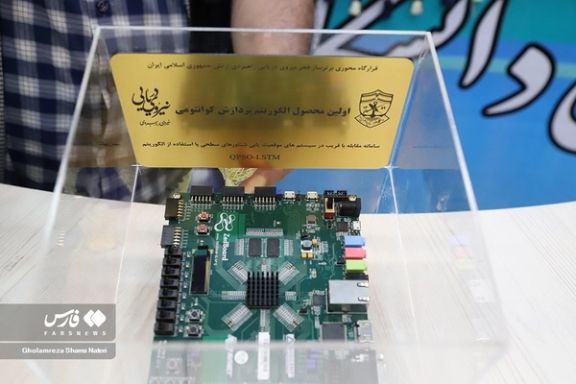
The controversy ensued after people started publishing photos of the exact processing board, which apparently is a low-cost development board by US-based hardware and software company Digilent, that has been in the market for about $600. The name of the brand and the model (ZedBoard Zynq-7000 ARM/FPGA SoC Development Board) is clearly seen on the board that was advertised as the achievement of the Army.

In the description of the device, state media said it is “a system to counter navigation deception in detecting surface vessels using the quantum algorithms.” There is in fact no quantum component, such as a quantum circuit or processor, in the device. Therefore, if the device does not have such a processor, it cannot use an esoteric quantum algorithm, a step-by-step procedure, where each step can be performed on a quantum computer.
A few days after the ceremony, Iran’s Supreme Leader Ali Khamenei said, “In the era of artificial intelligence, quantum, and the Internet, it is not possible to work with the same tools as 40 years ago. The tools must be relevant to the times.”
Ali Akbar Salehi, the former head of the Atomic Energy Organization of Iran (AEOI), repeatedly talked about developments in Iran’s quantum technology sphere and also inaugurated Iran’s first large laboratory dedicated to quantum physics in 2021. “The Atomic Energy Organization began work on quantum technology in 2016 and it is responsible for monitoring scientific developments throughout the world and prioritizing high tech technologies”, he said, but almost no tangible results were announced by the lab.
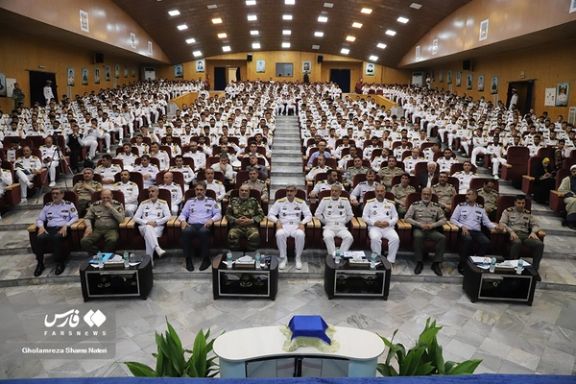
Using modern technology terminology has always been a propaganda tactic by the Islamic Republic’s officials, the latest of which was Iran’s so-called “hypersonic missile,” a descriptor that is convoluted with technical inaccuracies – to say the least.
Famously, in April 2020, soon after the beginning of the COVID-19 pandemic, Iran’s Revolutionary Guards claimed it had developed a "breakthrough" super-device that could detect people infected with coronavirus within 100 meters. IRGC Commander-in-chief Hossein Salami unveiled the device, which consisted of a handheld detector, an antenna, and a dish-like part that could detect the virus “with a reliability rate of around 80 percent” and promised its mass production.
Such claims are predominantly seen in military contexts in Iran but they have also become a laughing stock since President Ebrahim Raisi took office. He is known to have only elementary school education apart from Islamic seminary courses.
Earlier in the year, a university professor’s uninformed claim that the Python software program can 'predict the future' has caused new embarrassment for the government in Iran, in a scandal that was named ‘Python-Gate.’
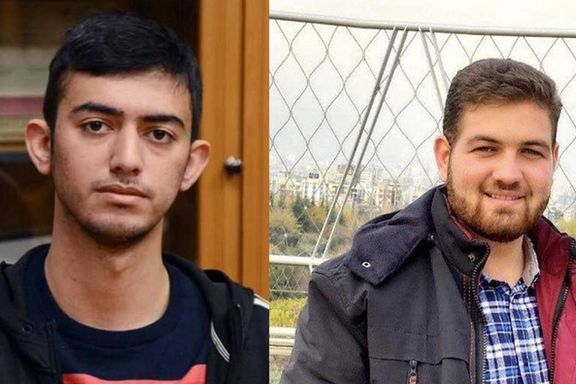
The second student of Tehran’s Amirkabir University suspiciously died this week due to alleged medical negligence.
The telegram channel of the Amir Kabir University said Yusef Sevizi, a mining engineering master's student suffered a cardiac arrest on Wednesday in the dormitory while the university authorities did not provide medical service.
On Wednesday last week, another student named Basir Ebrahimpour suffered a cardiac arrest and died in the Abureihan building of the university.
According to the channel, the emergency department of the university caused the death of these two students within a week by "failing to send medical staff and taking care of them in time".
Mohammad Shahriari, Head of Tehran's Criminal Affairs Prosecutor's Office, said Sweizi's body was transferred to the forensics department claiming the cause of his death will be announced after "toxicology and pathology tests".
Farsi media has speculated that the two were poisoned, but so far, there has been no confirmation.